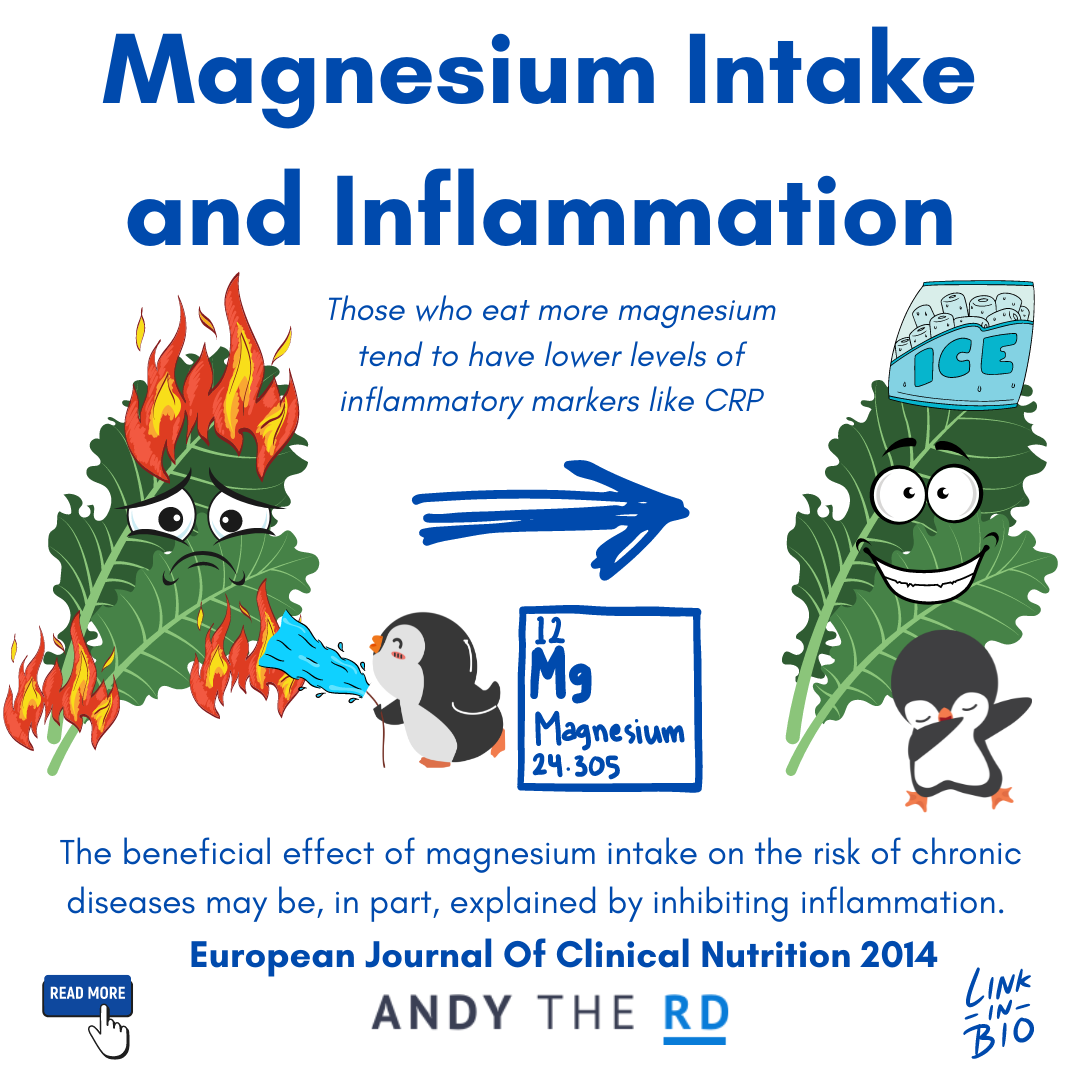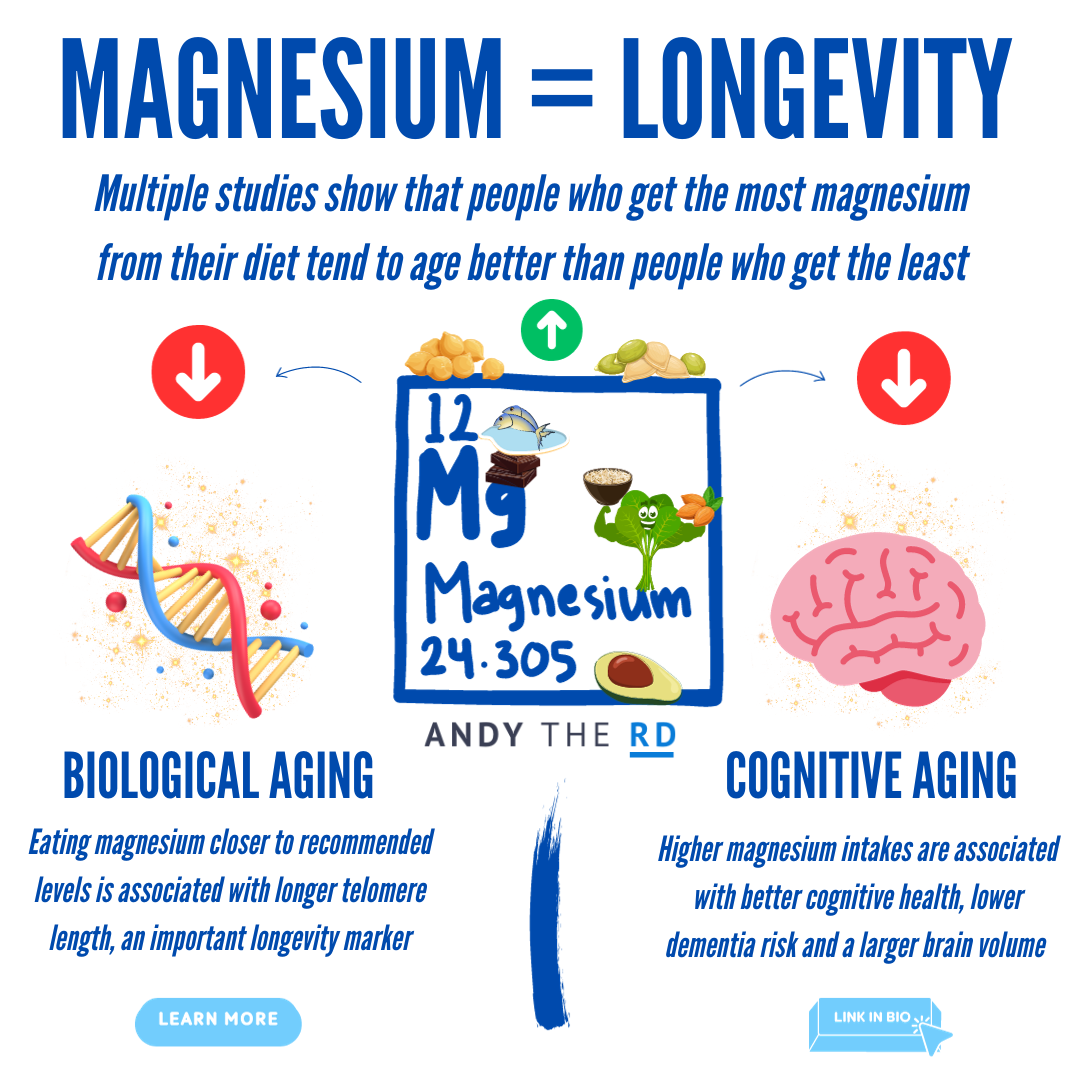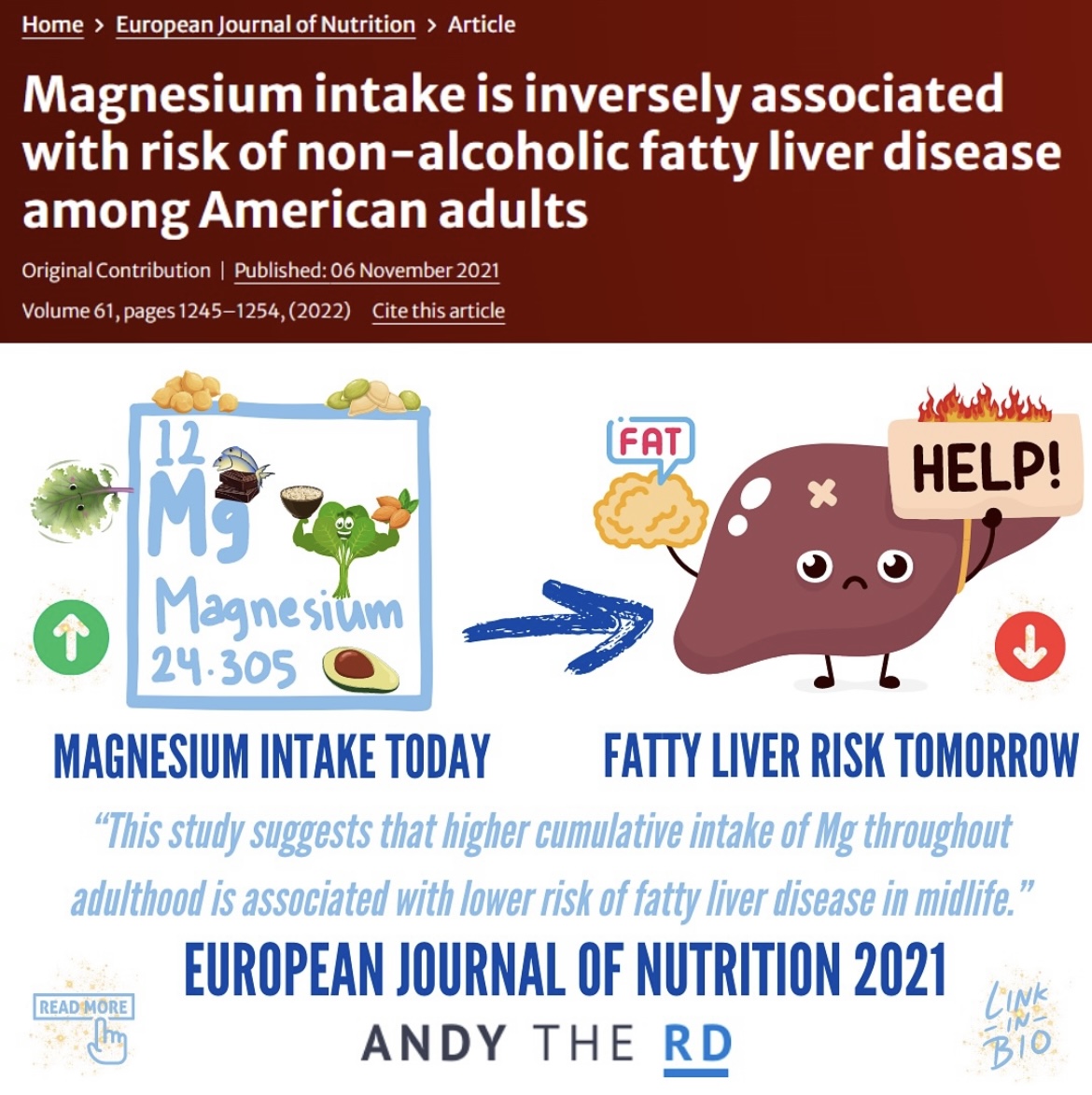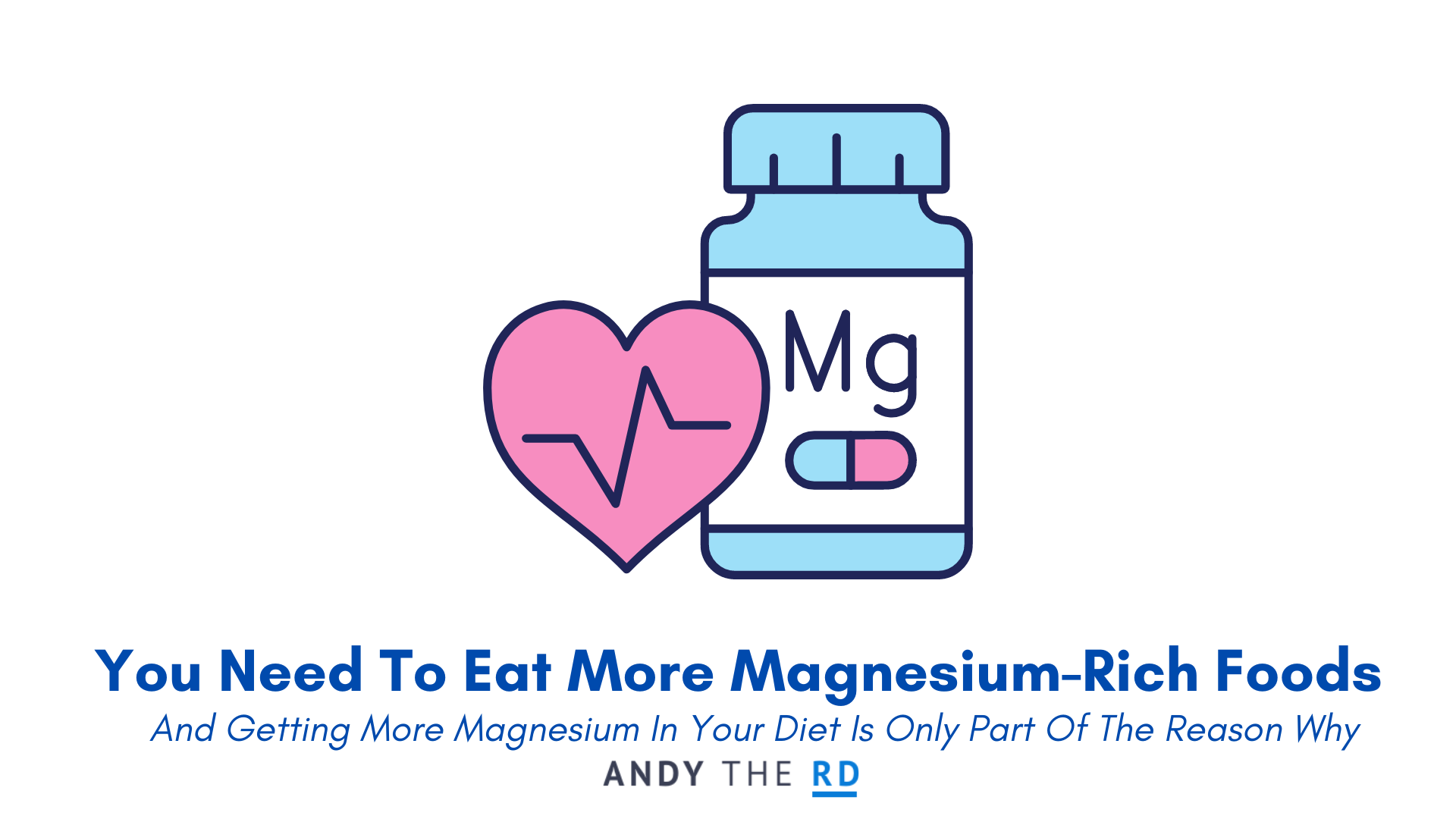The majority of population level data suggests that that current magnesium intake levels are insufficient among a significant portion of adults.
Earlier this year I did a live segment on CTV’s The Social discussing magnesium’s importance and apparently popularity.
It is also true magnesium supplements are currently everywhere on page one of Amazon’s top selling supplements list.
This is a reflection of the great deal of public interest around magnesium as a nutrient of concern from the public health perspective.
And for good reason.
Inadequate magnesium intake may worsen or increase one’s risk of:
- Metabolic conditions like fatty liver disease, prediabetes and PCOS
- High Blood Pressure
- Brain Health (Migraine, Cognitive Issues)
- Bone/Muscle Issues
- Excessive Inflammation, Aging

From my perspective as a dietitian, the thing that really makes magnesium unique is that it tends to be found in specific food groups that are either undervalued or underappreciated but that, in my estimation, are all fundamental to good health.
I explain my stance further in the section below.
Food Groups Rich In Magnesium
The families of foods that are high in magnesium and are also incredibly important for other reasons.
They include:
- Leafy Greens – Such as artichoke, chard, spinach and kale.
- Nuts/Seeds- Such as pumpkin seeds, chia seeds, flax seeds, hemp seeds, almonds, cashews and brazil nuts ( let’s throw avocado in here too as it is nutritionally similar).
- Legumes* – Such as tofu, lima beans, chickpeas, lentils and kidney beans.
- Whole Grains – Such as brown rice, quinoa and whole wheat pasta.
- Fish – Multiple types of fish contain magnesium, but I’d focus on options like salmon, sardines, herring and mackerel due to their high Vit D & Omega-3 content.
- Dark Chocolate – Even one square of dark chocolate contains a large amount of magnesium, among other benefits.
*I consider legumes the single most under-appreciated food group, with their high magnesium content a big reason why.
Other foods that are a source of magnesium include yogurt, avocado and even bananas!
Magnesium A Must For Longevity + Healthy Aging
Ensuring you consume enough magnesium is about more than just the current moment, with growing evidence suggesting that individuals who consume more magnesium are better placed to age well.
I make this claim with confidence for two reasons.

The first is that adults who consume more dietary magnesium tend to have better long-term cognitive health and a lower risk of dementia.
Recent evidence out of the European Journal Of Clinical Nutrition even suggests that those who eat more magnesium have healthier brain structures (larger volume, less lesions).
But there’s more.
A 2022 observational study out of Frontiers In Nutrition noted that individuals who consumed magnesium closer to recommended levels had longer telomere length at the cellular level.
Telomeres are components of human DNA that shorten with age, but the rate at which they shorten depends on certain dietary and lifestyle factors.
A longer telomere length generally reflects slower biological aging and better health.
Need A Magnesium-Rich Nutrition Plan? I Can Help
Let me start by saying that magnesium is not, by default, a special or super nutrient.
The reasons why these food groups are important goes well beyond their magnesium content, but this does speak to the broader reality that there are simply certain families of foods that contain key components/nutrients that are more or less indispensable.
Eating one serving from each of the listed family of foods above (among the magnesium-rich options listed) would more or less guarantee most people to have sufficient dietary magnesium intakes.
So why isn’t that happening already?
For a wide variety of reasons to be fair, not least of which is conflicting/inaccurate nutrition messaging available online, many of the foods in these categories are misunderstood or not properly appreciated.
My hope is that, in appreciating their rich magnesium content relative to magnesium intake at the population level, you will understand why I feel that way.
Certainly I know that any of my clients reading this today are smiling as they’ll know I’ve nudged them in this direction already.
If you require a little helpful nudge yourself, you know exactly who to call.
Until next time,
Andy De Santis RD MPH
I’ve also written an extensive piece on the potential role of magnesium supplements, click through any infographics below to read it!
BONUS – Magnesium & Liver Health






